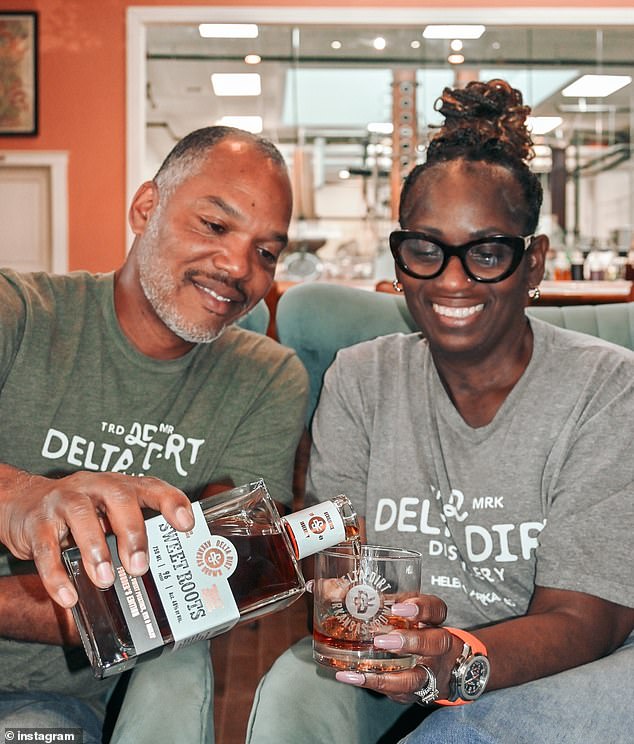Harvey Williams Jr made a million-dollar bet when he opened a distillery in Helena-West Helena, Arkansas, to help revive its abandoned Main Street.
The agronomist grew up in the area, returned there and made plans to reverse urban decline in his part of the Mississippi River delta.
“It was a dying main street,” he said. The Wall Street Journal. “It was shocking to see how the center became a ghost town.”
He is not alone.
Budding entrepreneurs across the United States are opening businesses to revive deteriorating main streets, which just a few decades ago were bustling centers and the backbone of communities.
Harvey Williams Jr pours a glass of liquor at his distillery, which helped revive ailing Helena-West Helena, Arkansas.
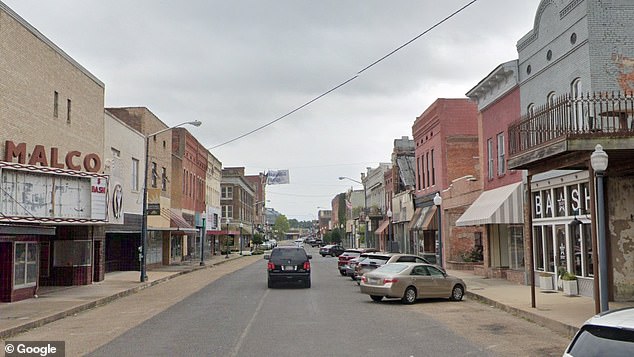
America’s Main Streets have endured a tough few decades, as retail moves online and brick-and-mortar stores close.
Some are surprise blows, but others cannot turn the tide against deep economic forces.
Williams spent $800,000 of his retirement savings plus $230,000 in bank loans to renovate 430 Cherry Street.
His Delta Dirt distillery makes sweet potato vodka using produce from his family’s farm.
Locals questioned Williams’ business sense when it opened in April 2021.
But they helped spread the word about the place on social media.
His bet paid off.
Sales last year reached $340,000: 5 percent online, 95 percent from buyers and distributors in stores in Arkansas, Mississippi, Pennsylvania and Tennessee.
Tourists travel from afar to visit the store.
Some also take a tour of the Williams family’s 86-acre vegetable farm, which their grandfather bought in 1949 with money from cotton and moonshine sales.
Williams says he looked beyond Helena-West Helena to sell his vodka everywhere and on the web.
“Today, it is important for Main Street businesses to diversify and not rely solely on local people to be successful,” he says.
He plans to expand distribution, offer new products and open a pizzeria next door.
Joseph Whitfield, executive director of the Phillips County Chamber of Commerce, says Williams attracted businesses and visitors to a struggling area that was losing population.
“Harvey has developed a plan for how to open a successful, world-class business in rural America despite all the challenges he had to overcome,” Whitfield says.
The main streets of America’s small towns and cities were once the lifeblood of local and family-owned businesses.
But small, local stores have been losing sales for decades as shoppers migrated online or to big box stores and malls.
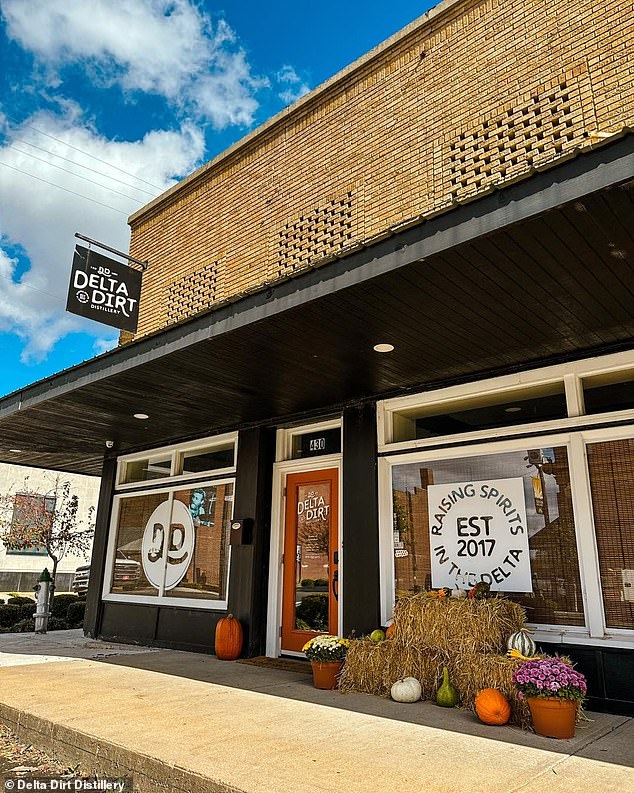
Delta Dirt Distillery makes sweet potato vodka using produce from the Williams family farm.
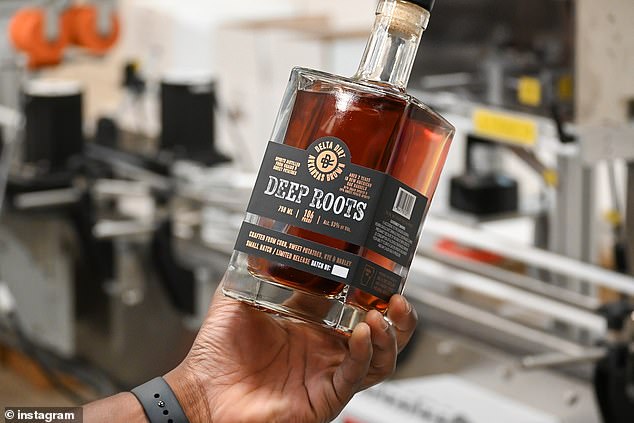
The distillery’s sales reached $340,000 last year, primarily from buyers and distributors in Arkansas, Mississippi, Pennsylvania and Tennessee.

Brian and Jennifer Jones, center, took the plunge and moved from California to Virginia, where they opened a pizzeria and pub.
Today, many small town main streets are reeling as industries close and people move away in search of jobs.
They are often plagued by closed stores and struggling businesses.
For some entrepreneurs, this may be part of the appeal of starting a new business.
Some have roots in the community and want to help change it.
Others are drawn to the charms of small towns or the opportunity to create their dream business in a picturesque location.
Jennifer Jones and her husband, Brian, are among those who took the step.
They owned a water filtration company in Northern California, but became worn down by the area’s crime rates, taxes, high costs of living, and wildfires.
They moved to Big Stone Gap, a former coal town of about 5,300 people in Virginia’s Appalachian Mountains, which they found while on vacation.
‘We fell in love with the town, its beauty and its people; “They were very friendly and welcoming,” Jones says.
“We feel like we went back in time 30 years ago.”
In April 2022, they purchased a struggling vegan pizzeria and its increasingly dilapidated building on Wood Avenue East.
The street was lined with failing and struggling stores in a town that had been losing residents since it closed its coalfield in the 1990s.
They spent $223,000 of their own money and borrowed $187,000 more to create Good Times Coal-Fired Pizza and Pub, which features live music.
Enthusiastic locals helped them lay the floors, build the bar and paint the restaurant, while City Manager Stephen Lawson and others promoted the place on social media.
The shared effort breathed new life into a sick community, Lawson said.
“The Joneses’ pizzeria and restaurant has had a positive impact on our city and has inspired other entrepreneurs to locate on Wood Avenue,” he said.
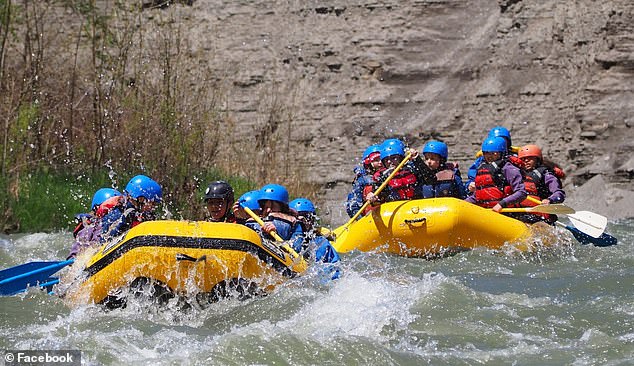
Bill Waterhouse’s outdoor gear store had to close, so he partnered with local guiding company Adventure Calls Outfitters.
“We are seeing more commercial activity and some population growth as people move here from all over the country in search of a better life.”
Bill Waterhouse, a former financial manager, and his partner, Sonja Olbert, a home health aide, also saw an opportunity for a local startup.
Four years ago, the hiking enthusiasts quit their jobs and left Massachusetts to move to Dansville, in upstate New York, to care for their elderly parents.
They lived near Leicester, a village of 2,500 people, whose main street had suffered the effects of the expansion of the rust belt in the 1980s.
With a $25,000 local grant, in April 2020 they opened Trail Otter, which sells boating, hiking and camping equipment, at 134 Main Street.
It is close to Letchworth State Park and its trails, waterfalls and scenic gorge.
The pandemic was a great time to start an outdoor sports business, and thanks to some smart marketing, they reached $40,000 in sales.
But sales plummeted last year thanks to competition from big box stores and online.
In March, the couple decided to leave retail and partner with a guiding company, Adventure Calls Outfitters, which will earn $50,000 next year.
Waterhouse says high street businesses need a “wow factor” in a tough market.
“This is something we learned the hard way,” he told The Journal.


